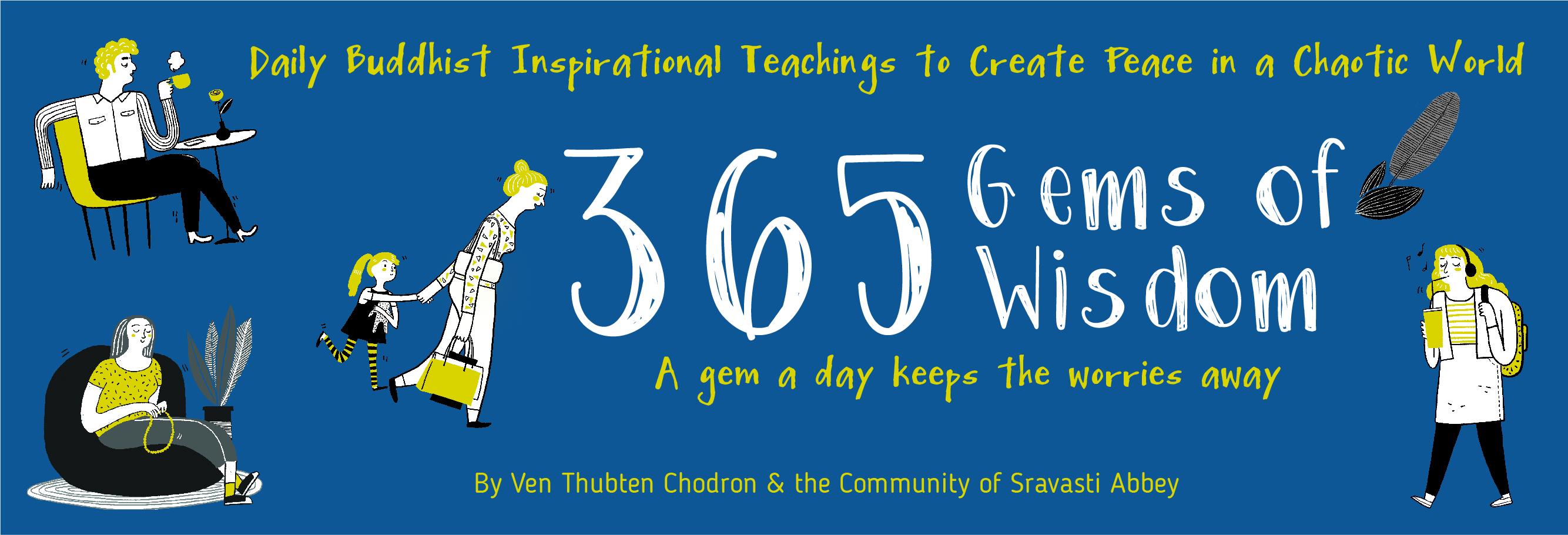August 23 : The Six Causes of Afflictions: Working with Habitual Emotional Patterns
Habit, habitual thinking, and habitual action. We see these a lot. We are creatures of habit. It is very interesting to trace in our meditation the kinds of actions we do habitually, and the kinds of mental attitudes we habitually have. It is remarkable when you start to see the patterns in your life and how much you “run automatic”.
Here is a situation that comes up very often in our lives. We put the glass upsidedown, they want it right-side-up, and we take it personally. We feel exasperated, angry, resentful and depressed — running completely on automatic. We never stop to think, “Well, what was the content of what the person said? Can I respond to the content?” Instead, immediately we take everything as a personal comment on who we are. Then self-grasping flares up. Self-centredness flares up. We respond in our usual pattern of emotional response, which of course triggers our usual pattern of verbal response. Which is, we back away and feel sorry for ourselves. We criticise the other person. We talk about the other person behind their back to vent whatever we are feeling.
Do you see this in yourself ? When is it going to happen when everyone approves 105% of everything we did? We are always going to hear remarks about how to improve, or what people found inconvenient. We have a choice. We can continue to run on our self-centred automatic, or we can rev up our introspective awareness and try and change these habits.
It is very helpful, in your meditation, to look at what emotional habits you have. One way to do that is to see what distracts you. Where does your mind go? When you are not on the object of meditation, what is your mind thinking about? Initially, you will say, “Well, I was thinking about the project I was doing.” You were not thinking about the project. You were thinking about what someone else said about the project, and what that meant for you and your value as a human being.
Initially, we do not even realise what we are thinking about. We think that we are thinking about the project, but we are thinking about ourselves. We should look at these things and learn to recognise what they actually are. It is very helpful. Make a list, if you must, in case you forget (we do not need to make a list of other people’s faults as we always remember those). But these kinds of things we tend to forget. It can be very helpful.
“365 Gems of Wisdom” e-book is out now!

